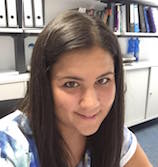Studying at the University of Verona
Here you can find information on the organisational aspects of the Programme, lecture timetables, learning activities and useful contact details for your time at the University, from enrolment to graduation.
Academic calendar
The academic calendar shows the deadlines and scheduled events that are relevant to students, teaching and technical-administrative staff of the University. Public holidays and University closures are also indicated. The academic year normally begins on 1 October each year and ends on 30 September of the following year.
Course calendar
The Academic Calendar sets out the degree programme lecture and exam timetables, as well as the relevant university closure dates..
| Period | From | To |
|---|---|---|
| primo semestre lauree triennali | Sep 17, 2018 | Jan 11, 2019 |
| secondo semestre lauree triennali | Feb 18, 2019 | May 31, 2019 |
| Session | From | To |
|---|---|---|
| prove intermedie - sessione autunnale | Nov 5, 2018 | Nov 9, 2018 |
| sessione invernale lauree triennali | Jan 14, 2019 | Feb 15, 2019 |
| prove intermedie - sessione primaverile | Apr 15, 2019 | Apr 18, 2019 |
| sessione estiva lauree triennali | Jun 3, 2019 | Jul 5, 2019 |
| Sessione autunnale | Aug 26, 2019 | Sep 13, 2019 |
| Session | From | To |
|---|---|---|
| Sessione autunnale (validità a.a. 2017/18) | Dec 6, 2018 | Dec 7, 2018 |
| Sessione invernale (validità a.a. 2017/18) | Apr 3, 2019 | Apr 5, 2019 |
| Sessione estiva (validità a.a. 2018/19) | Sep 10, 2019 | Sep 11, 2019 |
| Period | From | To |
|---|---|---|
| Festa di Ognissanti | Nov 1, 2018 | Nov 1, 2018 |
| Festa dell’Immacolata | Dec 8, 2018 | Dec 8, 2018 |
| Vacanze di Natale | Dec 22, 2018 | Jan 6, 2019 |
| Vacanze di Pasqua | Apr 19, 2019 | Apr 23, 2019 |
| Festa della liberazione | Apr 25, 2019 | Apr 25, 2019 |
| Festa del lavoro | May 1, 2019 | May 1, 2019 |
| Festa del Santo Patrono - S. Zeno | May 21, 2019 | May 21, 2019 |
| Attività sospese (vacanze estive) | Aug 5, 2019 | Aug 23, 2019 |
Exam calendar
Exam dates and rounds are managed by the relevant Economics Teaching and Student Services Unit.
To view all the exam sessions available, please use the Exam dashboard on ESSE3.
If you forgot your login details or have problems logging in, please contact the relevant IT HelpDesk, or check the login details recovery web page.
Academic staff

Cicogna Veronica
 veronica.cicogna@univr.it
veronica.cicogna@univr.it
 045 802 8246
045 802 8246
 silvano.corbella@univr.it
silvano.corbella@univr.it
Mussini Mauro
 mauro.mussini@univr.it
mauro.mussini@univr.it
 maurizio.pizzamiglio@univr.it
maurizio.pizzamiglio@univr.it
Study Plan
The Study Plan includes all modules, teaching and learning activities that each student will need to undertake during their time at the University.
Please select your Study Plan based on your enrollment year.
1° Year
| Modules | Credits | TAF | SSD |
|---|
2° Year activated in the A.Y. 2019/2020
| Modules | Credits | TAF | SSD |
|---|
3° Year activated in the A.Y. 2020/2021
| Modules | Credits | TAF | SSD |
|---|
| Modules | Credits | TAF | SSD |
|---|
| Modules | Credits | TAF | SSD |
|---|
| Modules | Credits | TAF | SSD |
|---|
| Modules | Credits | TAF | SSD |
|---|
Legend | Type of training activity (TTA)
TAF (Type of Educational Activity) All courses and activities are classified into different types of educational activities, indicated by a letter.
Macroeconomics (2018/2019)
Teaching code
4S00242
Teacher
Coordinator
Credits
9
Language
Italian
Scientific Disciplinary Sector (SSD)
SECS-P/01 - ECONOMICS
Period
secondo semestre lauree triennali dal Feb 18, 2019 al May 31, 2019.
Learning outcomes
The course aims to introduce students to the fundamental topics of macroeconomics. This discipline deals with the aggregate functioning of economic systems determined by the collective behaviour of consumers and firms, by the state intervention on the economy and by the international relations with the rest of the world. The course provides students also with a knowledgeable understanding of the scientific language and methodology adopted by macroeconomics. Its theory is made up of mathematical tools and models that formalize mechanisms behind the markets of goods, money and labour, since their interaction determines the level of national income, employment, and prices.
At the end of the course students will be able to make use of such analytical tools to understand and interpret the factors steering the evolution of economic systems at aggregate national level and to evaluate the macroeconomic effects of Central Bank and fiscal policy interventions.
Program
Lectures are delivered both in theory and in practice, with historical and empirical cases, and through individual and team work tutorials. Students will be asked to take weekly exercises and tests, so to assess their progress in preparation of the final exam. A tutorship (60h) is available to assist the weekly homework and team work assessments. The course has its additional elearning material publised in the university moodle website.
The main topics that will be addressed are the following:
1. Macroeconomics: History of Economic Thought and Economic History
2. National Accounts and further Empirical Evidence
3. The market of goods
4. The financial and monetary market
5. The IS-LM model
6. Macroeconomics and Economic Policy
7. Economic growth (including Harrod-Domar model)
8. The accumulation of capital and the technical progress
9. The labour market
10. Unemployment and inflation: the Phillips curve
11. The AD-AS equilibrium model
12. The open economy
Textbook:
**********************
Author(s): Blanchard Olivier, Amighini Alessia, Giavazzi Francesco
Title: Macroeconomia - Una prospettiva europea
Year: 2016
Publisher: Il Mulino
***********************
Solution Manual
***********************
Author(s): David W. Findlay
Title: Esercizi di macroeconomia. Guida allo studio del testo di Olivier Blanchard, Alessia Amighini, Francesco Giavazzi
Year: 2017 (connected with the textbook Blanchard et al. 2016)
Publisher: Il Mulino
**********************
Textbook: Chapters that are needed to be done
°°°°°°°°°°°°°°°°°°°°°°°°°°°°°°°°°°°°°°°°°°°°
Textbook basic References (see in the star box the detailed
bibliography):
Blanchard et al. (2016): Chap. 1-6, 7-9, 10-12, 17-18, 22-24.
Previous editions are also ok. In this case the combination between Solution Manual & Textbook is the following:
Findlay (2015) with Blanchard et al. (2014).
Findlay (2011) with Blanchard et al. (2011).
Findlay (2009) with Blanchard (2009).
| Author | Title | Publishing house | Year | ISBN | Notes |
|---|---|---|---|---|---|
| Findlay, David W | Esercizi di Macroeconomia. Guida allo studio del testo di Olivier Blanchard, Alessia Amighini, Francesco Giavazzi | Il Mulino | 2017 | 9788815272003 | Queste sono le due ultime edizioni del libro di testo e dell'eserciziario. Vanno bene anche edizioni precedenti, ma a quel punto è sempre bene abbinare le edizioni dei due testi, così da evitare incongruenze. |
| OLIVIER BLANCHARD, ALESSIA AMIGHINI, FRANCESCO GIAVAZZI | Macroeconomia. Una prospettiva europea | Il Mulino | 2016 | 978-88-15-26571-5 |
Examination Methods
=== Mid-term exam (covering the first part of the course) ===
It reflects the type of exam followed in the Final written exam. There is a multiple-choice test plus a few quantitative exercises. The outcome of the mid-term exam will contribute as a "bonus" to determine the mark of the final exam. The latter will be the same for all students. Let us define as Part A, the chapters of the course included in the mid-term exam (first part of the syllabus). The rule to compute the "bonus" is the following. For those that have passed both the mid-term and the final exam, the final mark of the written exam could take advantage of the marks obtained in the exercises of the mid-term exam, by substituting the latter to the former. More specifically, the mark of each exercise of the Part A of the final exam, will be compared to the correspondent mark obtained in the mid-term exam. When the latter is greater than the former, the average mark of the Final written exam, will take advantage of the superior marks of the mid-term exercises in place of those of Part A of the final exam.
The duration of the mid-term exam will be of 45 minutes for the multiple choice test, and 2hs for the two quantitative exercise that follow: i.e. 1h for each exercise that is composed by 4 questions.
=== Final exam (the same for all students) ===
The final exam is made up by a written exam, with multiple choice test and quantitative exercises. It is followed by an oral examination, according to the rules indicated below. Both written and oral exam cover the whole syllabus, regardless if a student sat or not the mid-term exam.
Written exam:
It is divided in two types of examination:
a) Multiple-choice test (20 questions) with a minimum requirement of 8 correct answers. The test weights 40% of the total marks of the written exam, i.e. 12 points over 30.
b) Quantitative exercises (4 exercises), with at least 3 questions for each exercise. Students are asked to complete at least 40% of the Part A (first part of the syllabus) and 40% of the Part B (second part of the syllabus) as a minimum requirement to be assessed. The exercises weight the remaining 60% of the total marks of the written exam, i.e. 18 points over 30.
Oral exam:
a) Optional: for those students that have gained a mark of 18 or above.
b) Compulsory: for those students that have gained a mark of 17, which is still a failing grade. With the oral examination they could try to make a pass grade.
=== Final grade ===
In computing the final grade of the exam, besides the written and oral examination, there are "bonuses", according to marks obtained in the mid-term exam and to the degree of active participation shown by students during the course.
Students that have passed the mid-term exam will be assessed as follows. The final grade of the written exam can take advantage of the marks given in the mid-term examination, since the marks of exercises of the Part A of the former could be replaced by the marks of the same type of exercises obtained by the latter. This substitution will be made only if it is advantageous for the student in raising his or her overall grade. Therefore the mid-term marks could weight in the final examination up to 30%.
Finally there is a bonus of a maximum additional 10% above the grade obtained in the written examination, according to the more or less active participation of the student to tutorials, exercises, and tests given throughout the course.
STUDENTS WITH 10CFU, 9CFU e 6CFU ENROLLED IN THE PREVIOUS YEARS
In this academic year students from old undergraduate courses, no longer active, should refer to this course. According to the difference of CFU, between the old and the present course, there will be variations (and integrations) of the basic programme.
Type D and Type F activities
Career prospects
Module/Programme news
News for students
There you will find information, resources and services useful during your time at the University (Student’s exam record, your study plan on ESSE3, Distance Learning courses, university email account, office forms, administrative procedures, etc.). You can log into MyUnivr with your GIA login details: only in this way will you be able to receive notification of all the notices from your teachers and your secretariat via email and also via the Univr app.
Graduation
List of thesis proposals
| theses proposals | Research area |
|---|---|
| Tesi di laurea - Il credit scoring | Statistics - Foundational and philosophical topics |
| La performance delle imprese che adottano politiche di Corporate Social responsibility | Various topics |
| La previsione della qualita' dei vini: Il caso dell'Amarone | Various topics |
| Proposte di tesi | Various topics |
| Tesi in Macroeconomia | Various topics |
| tesi triennali | Various topics |


































